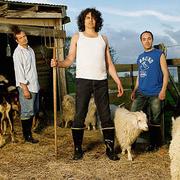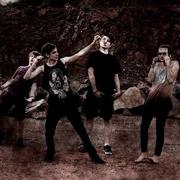Meat Loaf
| 基本信息 | |||
|---|---|---|---|
| 姓名 | Meat Loaf | 别名 | 暂无 |
| 国籍 | 美国 | 出生地 | |
| 语言 | 性别 | 男 | |
| 生日 | 星座 | ||
| 身高 | 体重 | ||
即将于1999年进入所有摇滚歌手梦寐以求、象征乐界最高荣誉的摇滚名人殿堂席位的Meat Loaf,在步入歌坛超过卅年后的今天,他为摇滚乐所做出的贡献获得了乐界一致的肯定。1951年生于美国达拉斯的Meat Loaf,由于生长于一个充满灵魂福音歌曲的家庭,所以一副雄浑充满灵性的歌喉,也可以算是得天独厚的天赋。1966年Meat Loaf与友人合组的团体「Meat Loaf Soul」,即为迷幻摇滚祖师级乐团「Popcorn Blizzard」的前身,身为主唱的Meat Loaf因着他浑厚的嗓音和极具强势爆发力的唱腔,攫获不少乐评以及同侪乐手及团体的瞩目。 之后的十年间,Meat Loaf陆续参与了几次像是:「Hair」、「Rainbow」、「The Rocky Horror Show」….等等乐史上最具影响力的摇滚歌剧的演出,不但展现了他傲人的演唱功力,也使得他琢磨出舞台表演的坚固实力。1977年首度以个人姿态推出的专辑"Bat Out Of Hell"奠定了Meat Loaf以后Theater Rock的特殊作风,承继Progressive Rock的前卫精神,Meat Loaf的歌曲编排多充满着结合管弦乐及古典摇滚交织的壮阔格式,其中又搀入浓稠的戏剧性,使得他的音乐在 Pop/Art Rock 的外衣之下,每一首歌曲都是一部有声电影。 Marvin Lee Aday was a singer and occasional actor who, for reasons never definitively answered, recorded under the name Meat Loaf. In all likelihood a childhood nickname, the tag stuck, and many puns followed as the performer -- who tipped the scales at well over 300 pounds -- became one of the biggest chart acts of the 1970s before enjoying a commercial renaissance two decades later.Meat Loaf was born in Dallas, TX. The product of a family of gospel singers, he moved to Los Angeles in 1967 and formed a group known as both Meat Loaf Soul and Popcorn Blizzard. The band earned some renown through opening gigs in support of the Who, the Stooges, and Ted Nugent before Meat Loaf won a role in a West Coast production of the musical Hair. During a tour stop in Detroit, he and a fellow castmate named Stoney teamed to record the 1971 LP Stoney & Meat Loaf for Motown's Rare Earth imprint. After a tenure in the off-Broadway production Rainbow (In New York), Meat Loaf earned a slot in More Than You Deserve, a musical written by classically trained pianist Jim Steinman. An appearance in the cult film The Rocky Horror Picture Show followed, and in 1976 Meat Loaf also handled vocal duties on one side of Nugent's LP Free-for-All. Soon, Meat Loaf reteamed with Steinman for a tour with the National Lampoon Road Show, after which Steinman began composing a musical update of the Peter Pan story titled Never Land.Ultimately, much of what Steinman composed for Never Land became absorbed into 1977's Bat Out of Hell, the album that made Meat Loaf a star. Produced by Todd Rundgren, the record was pure melodrama, a teen rock opera that spawned three Top 40 singles -- "Two Out of Three Ain't Bad," "Paradise by the Dashboard Light," and "You Took the Words Right Out of My Mouth" -- on its way to becoming one of the best-selling albums of the decade.A sequel was planned, but in 1981 Steinman issued his own solo debut, Bad for Good. After Meat Loaf released his own follow-up, Dead Ringer, rumors began flying, and it was reported that Loaf had been unable to record the songs that comprised the Steinman album due to physical and emotional problems. Eventually, Steinman filed suit against Meat Loaf and his label, Epic, and none of his songs appeared on the 1983 Meat Loaf effort Midnight at the Lost and Found. After subsequent records like 1984's Bad Attitude and 1986's Blind Before I Stop bombed, the singer declared bankruptcy and began physical and psychological rehabilitation to restore his road-ravaged voice.After several years in relative obscurity, Meat Loaf and Steinman reunited in 1993 for Bat Out of Hell II: Back into Hell, which continued the original's story line and duplicated its thunderous sound. The follow-up proved almost as successful as the first Bat Out of Hell, selling over five million copies and yielding a massive hit single with "I'd Do Anything for Love (But I Won't Do That)." Without Steinman, he returned in 1995 with Welcome to the Neighborhood. The career-long concert compilation Live Around the World followed one year later, but Meat Loaf released no more new material until well into the 2000s. Finally he recorded Couldn't Have Said It Better, which was released on Sanctuary in 2003. Three years later, after resolving the disputes surrounding its release, Bat Out of Hell III: The Monster Is Loose came out -- sans Steinman, though many of his songs were used, which was what caused the problems in the first place -- tracks from which were added to the production of Loaf's Bat Out of Hell play.
 加载评论内容,请稍等......
加载评论内容,请稍等......








